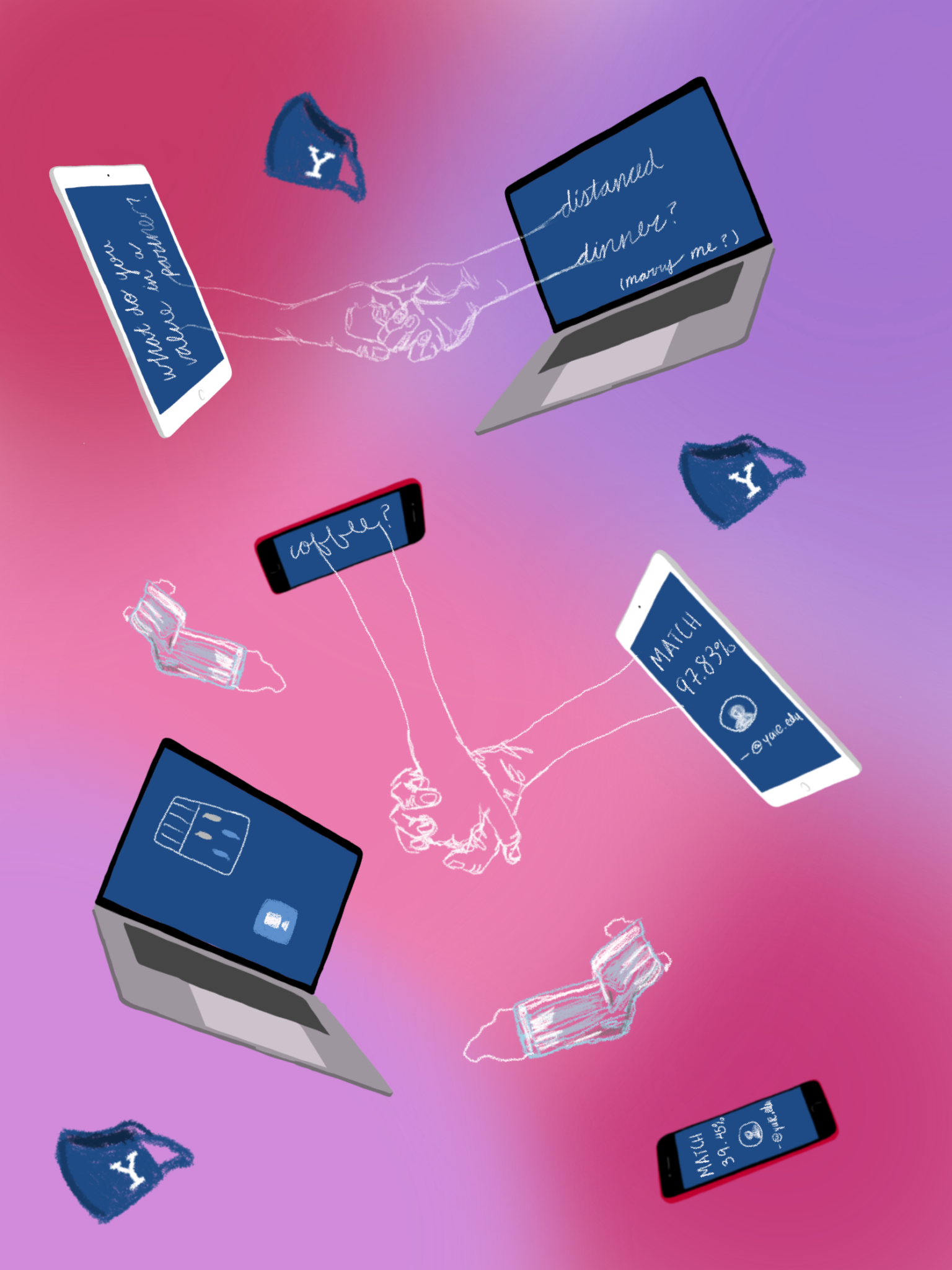
Karen Li
As part of the 45 percent of Yale students who signed up for the Marriage Pact, I’ll say, it definitely lent some spice to this semester of Zoom University.
I hopped onto this bandwagon relatively late. Last year, I signed up for the three-day dating event and ended up leaving my match and our suggested date location (a charming cafe, if I remember correctly) to moulder away in the ever-expanding backlog of my email account. My first year was too overwhelming: classes, extracurriculars, cooking in Stiles, managing my sleep schedule — I felt I didn’t have the time or energy for something as arduous as dating. Besides, my match didn’t bother to reach out to me. Obviously neither of us were up for it, and there’s nothing more boring than a date fueled only by a soulless sense of obligation.
I was ready to let this Marriage Pact pass by, even as my suitemates started filling it out, curious to see the results of the algorithm. What was the point? I’m studying remotely in Taiwan, which is, in relation to New Haven, literally on the opposite side of the Earth. There’s no way I’d be able to meet my match in person, and Zoom’s hard to coordinate across time zones, and I have five classes and three extracurriculars and…
It’d be nice if I could write that I had some kind of revelatory experience, that the Ghosts of Relationships Past and Present and Future came to me in a dream and told me that I’d die alone and forgotten if I didn’t fill out the Marriage Pact questionnaire, or that I had a vision of Cupid aiming his bow at me and firing an arrow, tipped not with an arrowhead but a phone displaying the Marriage Pact email.
Instead, I simply got bored and lonely one day after another round of Zoom University, and instead of procrastinating by mindlessly scrolling through Clickhole quizzes (I recommend “Which One Of My Garbage Sons Are You?” ), I went and filled out the Marriage Pact questionnaire. It’s a banal reason, but it’s mine.
What does the Marriage Pact mean to me? I’ll tell you what it didn’t mean to me first: I definitely felt no sense of commitment going in. Neither did I feel hope, or a glimmer of romance. Call me a hopeless romantic, but I have the idea that you find your “soulmate” just by living your own life, following your own dreams. Eventually, on your own personal journey, you’ll meet someone whose passions are compatible to yours, and that’s the one you’ll start a fulfilling and beautiful relationship with. Or you’ll never meet someone naturally this way, but at least you’ll have enjoyed your life. I have this distrust of electronic means of finding a match, you see. It’s just not… shoujo manga material (weebs will know what I mean).
The Marriage Pact did mean I could find a new friend, one who’d at least share a lot of values and basic demographic information with me, so there’d be a solid foundation for a platonic bond. Also, filling out the survey gave me some sense, at least, of what Yalies think Yalies care about. I found some of the questions… questionable. Perhaps my feelings only really reflect my own idiosyncrasies, but I genuinely believed that Yalies didn’t care about financial competition or traditional gender dynamics. Questions like “Do you care a lot about making more money than your peers?” (After years of fierce academic competition just to get here, we’re now competing based on income?) and “How important are gender roles in a relationship?” (And they say Yale’s a liberal feminist safe space…) tripped me up; I didn’t expect them at all!
Why did almost half of the Yale population fill this out? I think many of us are lonely, or at least a significant portion of us. There’s pressure to use the campus dating pool while we can — this may be the last time we’ll be in such close proximity to such a large population of people our age who likely share our aspirations and prospects. I suspect many of those who signed up are first years looking to get a college significant other, and single seniors who feel their romantic opportunities shrinking. Probably many of us were bored and wanted to see who we’d get matched to — there’s an element of chance, but also that of “fate” — some higher authority (the algorithm) is “choosing” for us, which feels special. Anything could happen! You could get anyone (and that anyone is likely someone you’d like)! All the thrill of gambling, but with guaranteed rewards.
With that said, my condolences, 274(?) heterosexual women who didn’t receive a match. Better luck next year, there will surely be another matchmaking service for Yalies by spring!
Claire Fang | claire.fang@yale.edu







